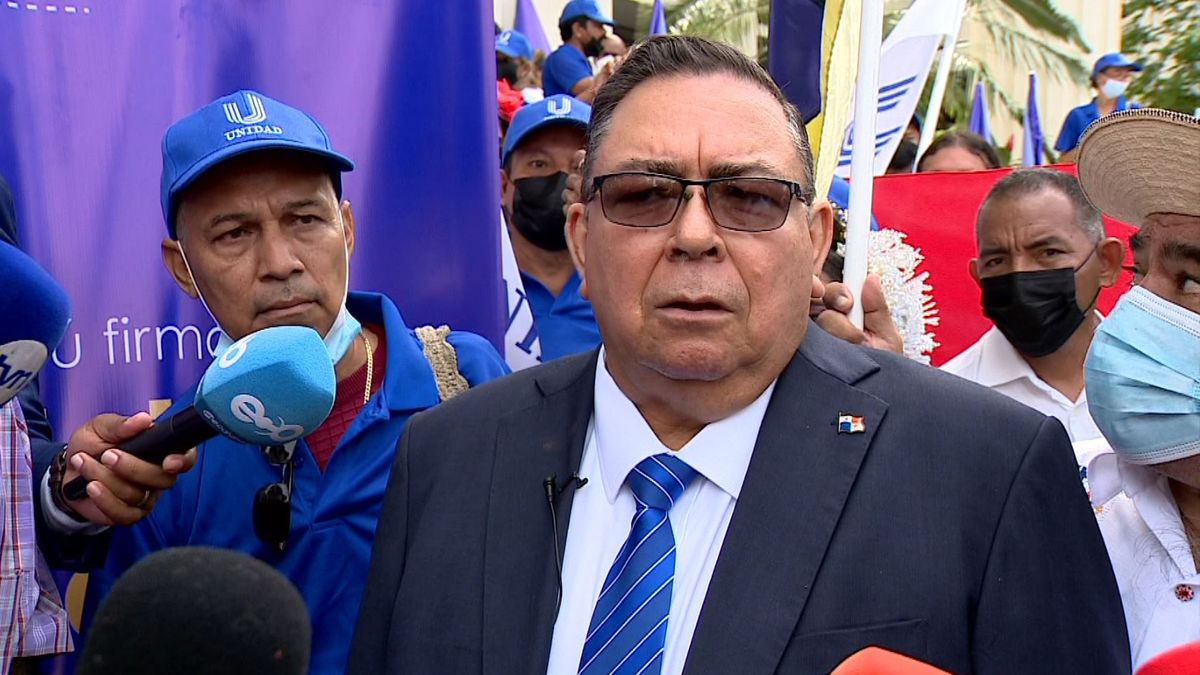In times of great tribulation, will Americans pay attention to the hearings on the January 6, 2021, takeover of Congress that endangered democracy?
The hearings of a special commission of the House of Representatives, after an intense investigation of the uprising and the role of Donald Trump, start this week. They promise to divulge shocking details about a violent uprising fueled by poison and the lies of a president defeated at the polls.
Public opinion, however, is currently focused on the slaughter of children in Texas, on murders with a racist undertone in Buffalo (New York State) and on other repeated scenes of massacre in the United States. Also in the high prices of gasoline, in a coronavirus that does not finish disappearing and in bitter political and cultural divisions.
People, on the other hand, are tired of talking about Trump.
Starting Thursday, the commission will put together a historical archive of an event that shook democracy. After summoning more than 100 people to testify by force, conducting more than 1,000 interviews and reviewing 100,000 documents, the commission promises to present a scandalous version of events.
Dozens of rebels have been or are being tried. But the commission’s goal goes further: It seeks to determine whether there are powerful people who must also be held accountable. Questions abound: Did Vice President Mike Pensé refuse to leave Congress in the midst of a siege because he suspected that the secret service, following Trump’s wishes, wanted to prevent him from certifying Joe Biden’s victory in the elections? Is it true that Trump flushed compromising documents down the White House toilet?
One of the big goals is to determine if Trump committed any crime, as a judge suggested, and if it is appropriate to prosecute a former president.
It will also be seen whether Trump’s numerous pimps need to be punished, including legislators who bowed to his efforts to disregard the results of a clean election and ended up crouching, seeking refuge, like the rest of their colleagues, when the insurgents burst into the Congress building to try to prevent the certification of Biden’s victory.
Democratic Rep. Jamie Raskin raised high expectations.
“A huge story will be told in the hearings,” Raskin anticipated in April. “It is the story of the most heinous and vile political transgression ever committed by a president, his people and his supporters, in the history of the United States.”
In what did that transgression consist? “It was a coup from within” accompanied by a violent attack by “neo-fascist” elements, she said.
Trump is not expected to be physically present at the hearings, but his words and actions will be a major focus of interest as lawmakers seek to place him at the center of all the chaos. It is likely that Trump will find a way to rant against investigators without doing so under oath.
Investigators will try to prove that the takeover of Congress was not spontaneous, but part of a conspiracy.
Much of what will come to light is already known. The shot was broadcast live on television, as was Trump’s exhortation to his supporters to fight back.
“In quieter times, the hearings would generate more attention,” said Kathleen Hall Jamieson, director of the Annenberg Public Policy Center at the University of Pennsylvania. “But this time they will compete with issues more relevant to our lives in the immediate future.”
Hungry babies who don’t have formula. Prices higher every day. An increase in the number of people vaccinated against COVID-19 who are hospitalized. The possibility that the Russian invasion of Ukraine degenerates into a nuclear conflict. Monkeypox.
“If we want the hearings to do more than reinforce what people already think,” Jamieson said, “they are going to have to reveal things that hadn’t been brought to light and that compromised something that both Democrats and independents and most Republicans believe is wrong. sacrosanct”.
The commission is made up of seven Democrats and two Republicans, including Rep. Liz Cheney, an independent conservative lawmaker who is the only Republican figure challenging Trump who is seeking re-election.
Once a symbol of the Republican establishment, today she is a marginal figure in the midst of a new order dominated by Trump, who wants to be defeated in the August primary.
Dartmouth College historian Matthew Delmont believes the January 6 episodes are so relevant that the public will put aside their other concerns and closely follow the investigation.
“People want to know how our democracy got so close to a cliff,” he said.
Trump’s allies tried to downplay the gravity of what happened on January 6, and they partially succeeded. Republican voters say they believe the 2020 election was rigged, even though everyone — the courts, even Republican officials and the government’s own election monitors — have said the election was fair.
Trump narrowly won the 2016 election, losing the popular vote. In 2018 he lost the majority in the House of Representatives and in 2020 he was defeated by a wide margin by Biden.
Despite everything, he controls the Republican Party, thanks to figures who express total loyalty to him and who are unlikely to be eliminated, no matter what the legislative commission says.
–
:quality(70)/cloudfront-us-east-1.images.arcpublishing.com/tronc/DEW4VOWEOONCUIC5E6UG3XTPMA.jpg)

